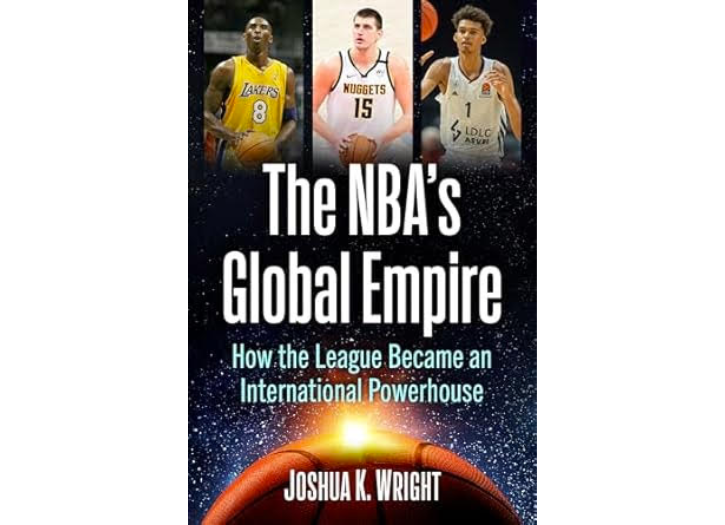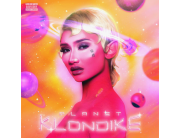In the 1980s, the NBA desperately needed a rebrand to address public disinterest and financial losses and compete with the popularity of rival professional sports leagues. A spark would soon come with the arrival of Erving “Magic” Johnson and Larry Bird, followed by the assembly of the “Dream Team,” a star-studded roster featuring those two aging icons, Michael Jordan in the prime of his career, and the outspoken Charles Barkley for the 1992 Summer Olympics in Barcelona, Spain. Their domination en route to claiming Gold catapulted the NBA into a post-Cold War global juggernaut with massive exposure overseas.
In his new book, The NBA’s Global Empire: How the League Became an International Powerhouse, Dr. Joshua K. Wright, a nationally recognized historian, educator, and NBA enthusiast, expertly explores the evolution of the NBA since the Dream Team and the impact of globalization on the game.
Over the last two decades, basketball fans have witnessed transcendent players like Kobe Bryant, LeBron James, and Stephen Curry, who have inspired the younger generation of stars. But many ask, what does the NBA’s future look like? As social media and digital streaming make NBA content more accessible to audiences around the world and business expansion opportunities continue to arise, odds are, it will look far different than ever before.
“The League is no longer limited to Los Angeles and Boston. This season the NBA hosted eight games in Abu Dhabi, Montreal, Paris, and Mexico City. The league will continue to globalize, and we have been on this fast track since the late 1990s,” said Wright.
“There is a nationalistic push to have an American player take the torch from the league’s current superstars LeBron and Curry. Minnesota Timberwolves’s 23-year-old guard Anthony Edwards has been heavily promoted by the media, but he has not claimed it. Before him, the media was hyping Zion [Williamson] and Ja [Morant]. Boston Celtics’ all-star Jayson Tatum yearns to be the new “face of the league” but lacks charisma. Americans need to get comfortable with Shai Gilgeous-Alexander (Canada), Luca Dončić (Slovenia), Giannis Antetokoumpo (Greece), Nicola Jokić (Serbia), and Victor Wembanyama (France) being the most likely torchbearers.”
The NBA has experienced the pros and cons of globalization. Players and executives have become embroiled in international geopolitical conflicts like the 2019 Hong Kong protests. Along with an enormous following across Europe and growing fan bases in Asia and Africa, the new wave of foreign-born NBA stars appears to threaten the position American athletes have long dominated. 30% of current NBA players are foreign-born, and France alone had four lottery picks in last June’s draft. In a majority Black league, most of the current White players are European. Africa is shaping up to be the next breeding ground for talent, with academies that are developing prospects at a young age.
With fewer Americans being drafted, is globalization to blame for a disconnect with fans? “Critics say the NBA’s overall product is bad, causing domestic interest and viewership to decline,” said Dr. Wright. “Fans think today’s players are overpaid, have too much power, and do not care as much as past generations.”
This reality has experts pondering over long-term ramifications, considering that the NFL remains America’s most popular sport but is also exploring more games played in foreign countries and a potential European expansion team. For nearly three decades, the NBA owned the sports landscape on Christmas Day. Now it must compete with live NFL games and NFL halftime shows starring Beyonce for holiday viewership.
Commissioner Adam Silver remains steadfast in his efforts to make the NBA the best sports league in the world. He has publicly expressed a desire to develop an expansion league in Europe. Maverick Carter, LeBron’s business partner, is exploring the formation of a rival European basketball league.
Dr. Wright’s The NBA’s Global Empire masterfully addresses these topics while providing enjoyable NBA history, biographical sketches, and detailed documentation on the rise of foreign-born players and the changing landscape of the NBA. As a professor of Global Affairs classes, a former collegiate track athlete, and an avid sports fan, his approach appeals to serious scholars and casual basketball fans.
“The NBA is a microcosm of globalization’s impact on our world. I am excited to see the discussions that arise from this book and the topics and questions raised in it,” said Wright.
Joshua K. Wright, Ph.D., is an associate professor of history in the Global Studies Department at Trinity Washington University in Washington, D.C. He is a guest contributor for MSNBC Daily and the former host of the Woke History (2021-22) podcast streaming on the NPR One app.
Photo Credit: Courtesy of Joshua K. Wright







Add Comment